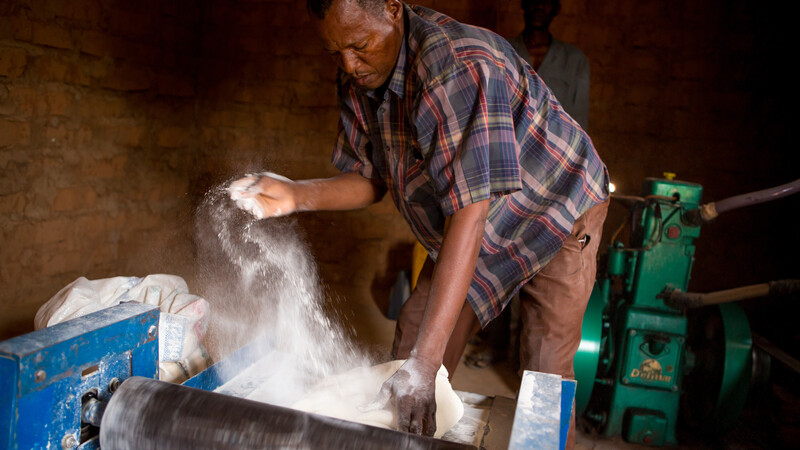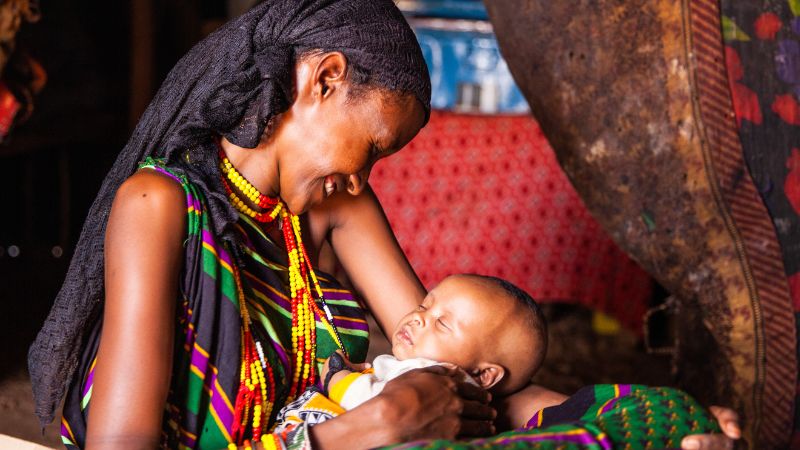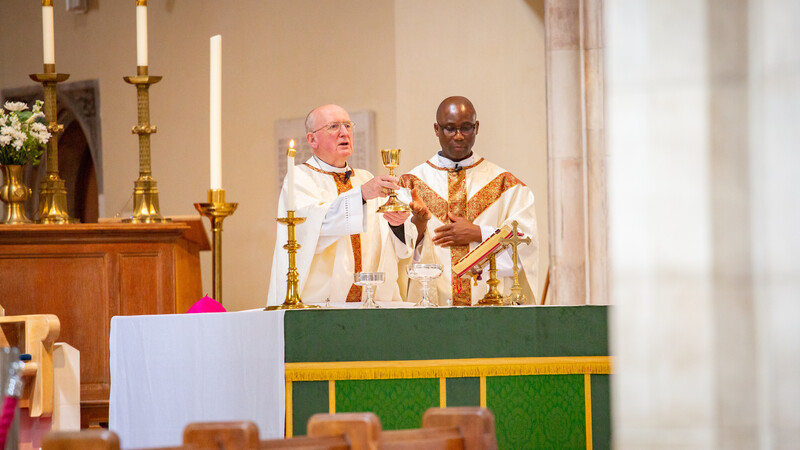From a broken food system to broken bread

As World Food Day approaches, Francis from our Theology Programme moves from Jeremiah to Jesus to see what lessons we can learn about the food system today.
The theme of this year’s World Food Day highlights how people are going hungry because of Covid-19, conflict and the effects of climate change disrupting the global food system.
The writing of Pope Francis’ encyclical from 2020, Fratelli Tutti, was itself interrupted by the outbreak of pandemic. This shaped the reflections of the pope in a particularly direct way. The introduction to Fratelli Tutti says:
“As I was writing this letter, the COVID-19 pandemic unexpectedly erupted, exposing our false securities. Aside from the different ways that various countries responded to the crisis, their inability to work together became quite evident. For all our hyperconnectivity, we witnessed a fragmentation that made it difficult to resolve problems that affect us all. Anyone who thinks that the only lesson to be learned was the need to improve what we are already doing, or refine existing systems and regulations, is denying reality.”

“For all our hyperconnectivity” as a world, we are faced with the struggles like that of Talaso, seeking to feed her children in a drought-stricken area of Northern Kenya.
False securities exposed
Pope Francis, like prophets of old, wants us to see not only how different shocks cause crises, but also how they reveal that things were already not right. How they expose our false securities.
In the Old Testament, prophets come along when the people have put their trust in something other than God. Something that is failing them. Jeremiah says, for example, “For My people have committed two evils: They have forsaken Me, the fountain of living waters, and hewn for themselves cisterns — broken cisterns that can hold no water” (Jeremiah 2:13)
“Broken cisterns” doesn’t literally mean water pipes (or dysfunctional toilets), but other gods. In Jeremiah’s day, other deities represented the lure of more glamourous civilisations without concern for the poor.
We’ve explored in previous blogs how the ancient Israelites learnt the importance of a shared life with the poor through their experience in the wilderness. Each day they gathered manna, which would not keep overnight. Yet, in our day, the importance of people holding reserves of grain takes centre-stage. Economists say that we cannot rely on supply chains to deliver food to everyone, just in time. Instead,people must have access to reserves, just in case.
Jesus, the new manna
For the ancient Israelites, gathering manna represents a closeness to God, “fountain of living waters”- the true source of sustenance. Like his ancestors, Jesus’s closeness to his Father is also tested in the wilderness. There he refuses the devil’s temptations to satiate his hunger.
Yet, in the Gospel story of the feeding of the 5000 there is food in abundance. The miracle of the multiplication of the loaves and the fishes is almost like the claim of Fritz Haber, inventor of artificial fertilizer, to have made “bread from air”. Yet Jesus is no magician.
There is no chemical formula behind this miracle, but a sign of the Kingdom. A clue lies in the symbolism of the twelve baskets in which the leftovers are collected. They are representative of the twelve tribes of Israel. And the act of gathering symbolises the coming together of the scattered people of God. The gathering of the hungry crowds themselves is the key to the miraculous transformation. They are not only a problem to be solved, a mob to be dispersed. It is the disciples who are anxious to be rid of the crowds; Jesus wants a feast.
Join us for an online workshop on food and faith.
Breaking bread
There is no manna for Jesus for his 40 days in the wilderness. But, the signs and wonders we hear about in the Gospels are confirmed in Jesus’ words in John 6:30-35. He himself is the manna, the bread of life, given for the hungry people. Fasting does have a place in Catholicism. At Lent, we are invited to give something up and enter into the wilderness for a time. Yet a more central obligation of the faith is not to fast, but to break bread. To share the weekly feast of the Eucharist.

So, in response to the broken cisterns of our food system, Jesus offers us broken bread. The brokenness of bread is not the brokenness of dysfunction but the gathering of people, the sharing of table fellowship.
When smaller farmers or businesses share their profits or become co-operatives, this is sometimes known as “solidarity economy”. In this model, sharing is seen as a source of strength, not weakness. Reinvesting profits into the community or in the workforce builds trust. This enables small producers to be a viable economic alternative to big business, even when big corporations and financial traders dominate the food system. Those powerful forces profit from the emphasis on increased production at all costs, but when we share, we enact a small rebellion. The real abundance of Creation is revealed, and fears of scarcity dispelled.
By breaking bread, by sharing with our neighbours, the paradox is that we will become stronger and more human.
Pray that as we break bread together we may catch a glimpse of God’s Kingdom here on earth